“I’m (Not) Good”
Women’s Basketball Coach Kelly Thompson oversees practice with the team on Oct. 17, 2020.
In this exclusive piece for The Hawks’ Herald, RWU Women’s Basketball Coach Kelly Thompson reflects on how COVID-19 has taken its toll on her, student athletes and the athletics program at the university.
Three days a week, I sit in my partitioned cubicle in the Field House to administer COVID-19 tests to members of the RWU community. With every person who walks in, so follows the typical pleasantries, most frequently, “How are you?” Each time I’m asked, I respond with “good.”
Well, the truth is, I’m not good. The truth is, I’m not okay. I don’t think our student-athletes are either.
Just like the rest of the country, the college athletic world shut down on March 12, 2020. Seasons ended early, some before they even started. Seniors who would never get one last chance to win a championship, or even practice with their teammates. Unfinished business of the worst kind.
We have all experienced disappointments because of COVID. Missed milestones, canceled events and a completely altered way of life as we trudge forward. Some have had to wonder how their loved ones were doing in the hospital or experience the heartbreak of losing someone to this terrible virus. That perspective is not lost on me. I have a job (for now), a home and my family is healthy. I know I’m luckier than a lot of people. When I think of that, I feel guilty for not feeling “good.” But what I’ve learned is that you can feel lucky and shitty at the same time.
It is hard to earn a spot on a college athletics team. In most of the sports sponsored by the NCAA, less than five percent of high school athletes will go on to play at the collegiate level. Harder still is making it through all four years. The challenges go far beyond the physical — student-athletes are expected to be socially, mentally and emotionally accountable. Not to mention balancing the “student” with the “athlete.” But they do it, and here at Roger Williams, most of them do it incredibly well. They are leaders in their craft, but also in demonstrating resilience, teamwork and work ethic. Ultimately, they are so passionate about their sport, that the sacrifices they make in other areas of their lives are worth it.
When you’re a college student-athlete, in many ways, you feel like your sport defines you. Your friends are your teammates. Your schedule will always include something to do with or for your team. Your food, exercise and social choices impact your performance and ultimately your team’s performance. You become so invested in the collective team goal — whether it’s making the playoffs or winning a championship — that in some ways it consumes your life. You think about it in the morning when you wake up and when you go to sleep at night. Falling short of your goals is devastating.
In some ways, coaches are just grown-up student-athletes. We love our sport so much we made it our profession. Like our athletes, we set goals and dedicate our lives to our program. We sacrifice time with our loved ones to develop our Hawk family. For me, coaching is mostly about the women I coach. They become extensions of my family. I have a love for them that is second only to my own children. When they hurt, I hurt.
Right now, I see them hurting. Like the rest of the students at RWU, they are happy to be back on campus but struggling with the new class format. They’re adjusting to not being able to hang out with their friends in the same way or eat a meal without worrying about contracting COVID. But they also are missing their sport. Sure, we can practice. But practicing with a fraction of your teammates four times a week with no games in sight is not the same as preparing for a season. Not to mention the masks — I’m over here huffing and puffing when I walk up the Rec Center ramp, and my players are completing full two-hour basketball practices without complaint. Like I said before, resilient.
Not knowing if we will play games is unbearable. The waiting is excruciating. We search for any information we can get, speculate about what might happen and dwell on rumors. As a coach, I’m trying to prepare them — and to be honest, I’m not sure if I should be preparing them for games or disappointment. I see tears in the eyes of my seniors any time we are outside of practice because even the thought of our season being canceled crushes them. I look at my underclassmen and wonder if we will have the chance to see their growth from a year ago. I ache when I think about the possibility of not getting the chance to reach our goals with this team. Sure, most of us will get our chance next year. But we will never get the chance to do it with this team.
Still, we practice, because that’s what we’re allowed to do. It’s the two hours of my day I look forward to the most. I’m a coach. I became a coach because I loved basketball, and I stayed a coach because I love watching young women grow through the game. Coaches, like student-athletes, aren’t meant to be kept in boxes or partitions. We are supposed to be meeting with our players, planning practice, preparing for games, recruiting, fundraising or contacting alumni. We are supposed to be professionally developing and helping our assistant coaches do the same. When I’m doing testing, I feel like a caged bird, aching to spread my wings and fly. But it’s what must be done to keep our community safe and our university operating at a sustainable budget. I have to make sacrifices, just like my team does. I am smart enough to understand it, I’m just not emotionally advanced enough to accept it wholeheartedly.
In sports, we are used to overcoming adversity — you can’t ever get through a season without it. We are conditioned to come together as a team when things get tough. On the court, that means high fives, pats on the back and huddling tight. Try doing that when you have to stay socially distanced from your teammates. COVID rules are the antithesis to the culture I’ve spent 11 years building at Roger Williams. It’s no one’s fault, but it’s still hard.
But still, we will come together in other ways. We will rely on our training as athletes and coaches and find a way to unite to overcome the challenges before us. We will be innovative and do our best to engage and prepare our team for the season that may never be. We will practice with masks on and administer COVID tests because that’s what we have to do to be here. We love Roger Williams University and each other too much not to.
So, the next time you come through my COVID testing line and ask me how I’m doing, I’ll probably respond “good,” but in my heart, I know “good” isn’t going to be here for a while. I’ll get through it, and so will you.
Emily Dvareckas graduated from RWU in 2022 with a degree in forensic science. She spent three years with The Hawks’ Herald as the photo editor...

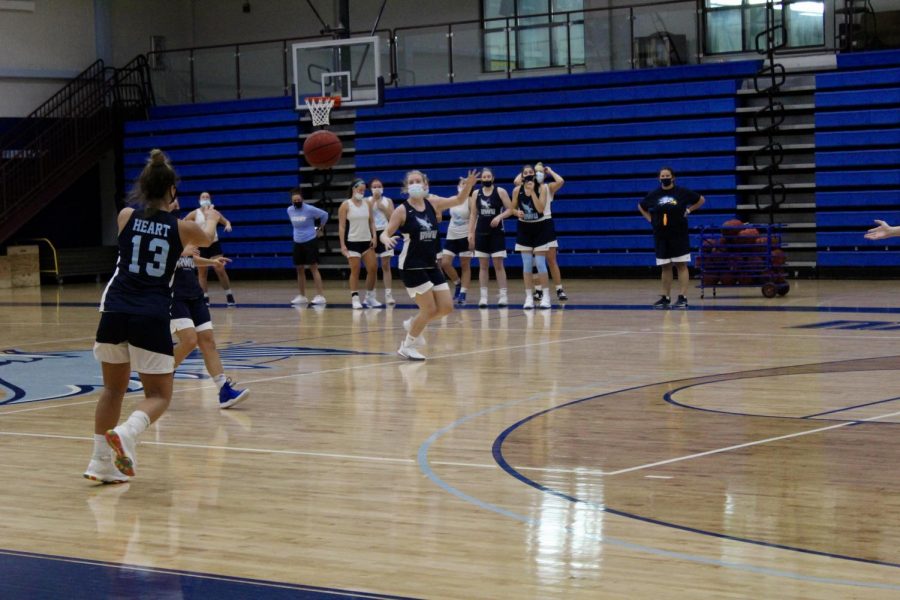
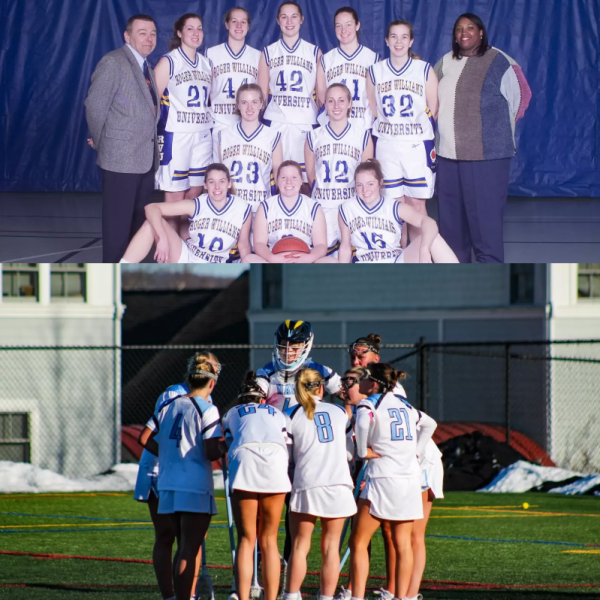
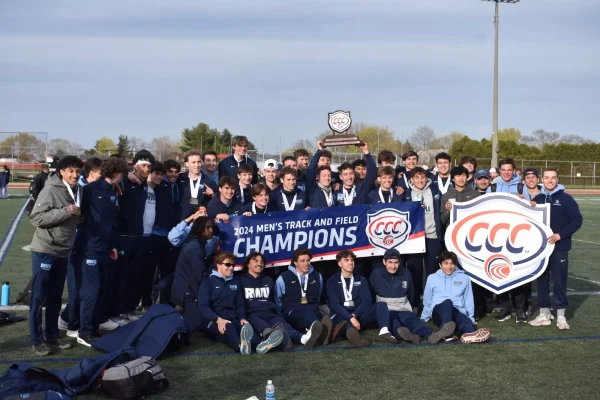
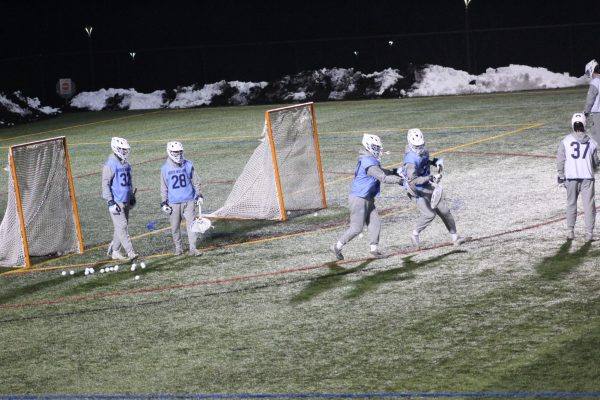
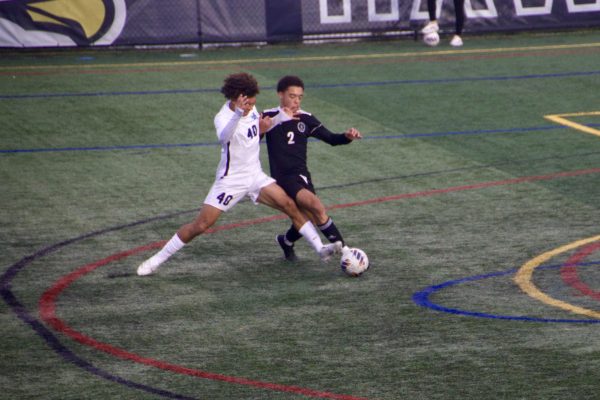
Dan Picard • Oct 23, 2020 at 7:55 am
Fantastic article showing the effects Covid is having. As a parent, it hurts seeing my high school aged son playing his sport (soccer) while the other son lost his first collegiate season (golf). For the first time in 25+ years, I may not be in a collegiate gym to train, develop and coach my team (basketball officials).
Fingers crossed that a vaccine is available shortly and we all can hopefully return to our pre-Covid lives.